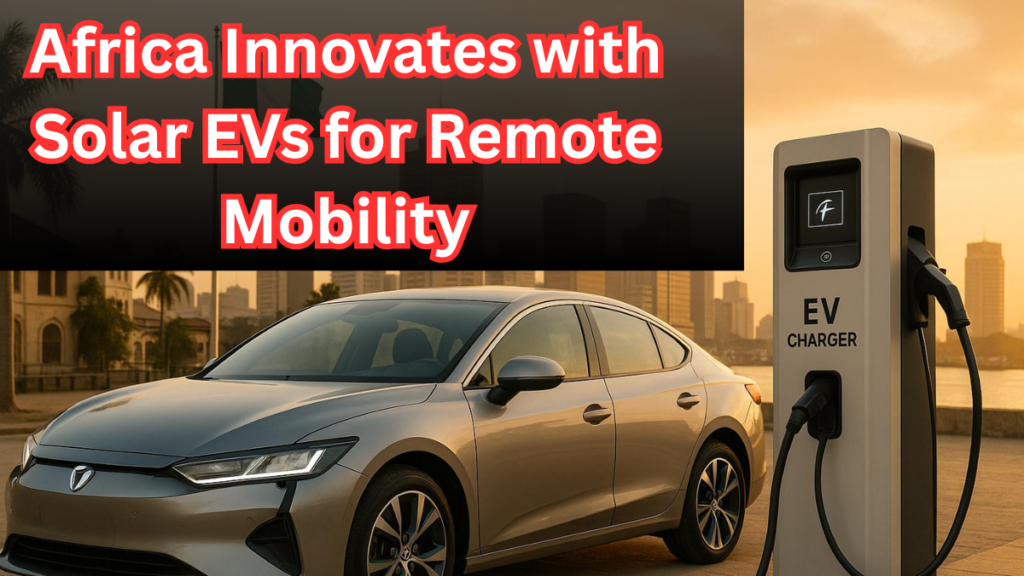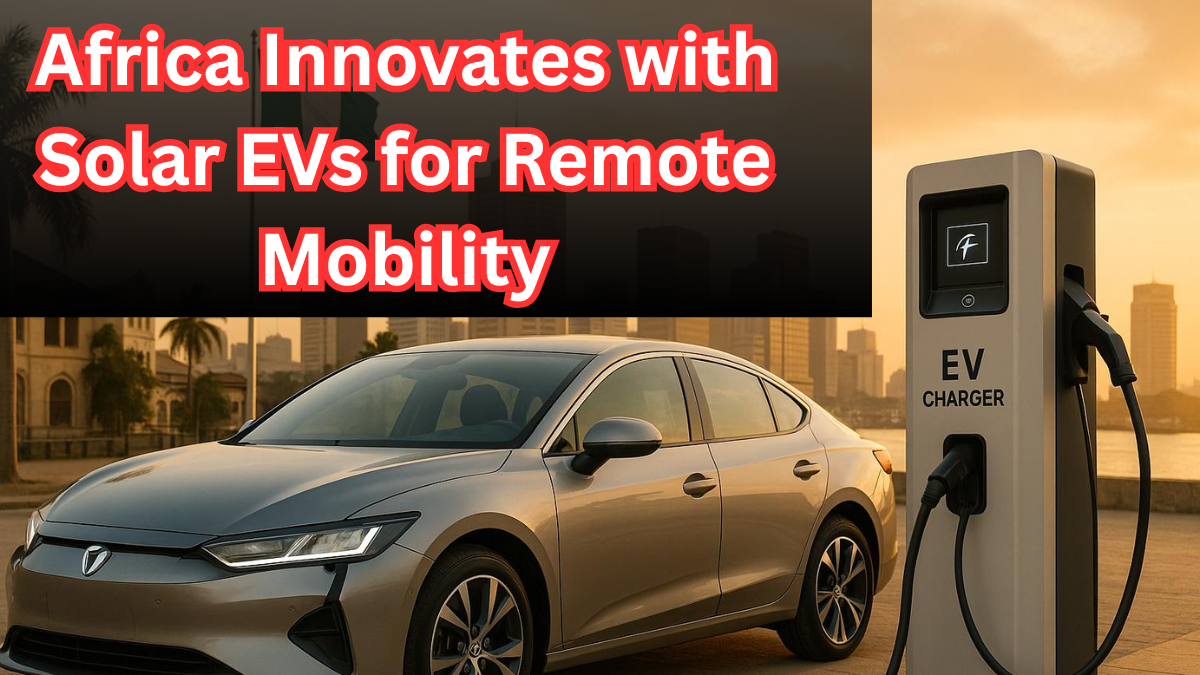In a continent blessed with abundant sunshine but challenged by limited infrastructure, Africa is now embracing a transformative solution: solar-powered EVs. These electric vehicles are redefining mobility, especially for off-grid communities that have long faced transportation barriers.

Why Solar-Powered EVs Are Game-Changers
For many rural areas across Africa, traditional fuels are either too expensive or inaccessible. In these regions, solar energy is emerging as a sustainable and affordable answer.
Key Benefits
-
No reliance on fossil fuels
-
Affordable operation and maintenance
-
Environmentally friendly
-
Designed for rugged, rural terrains
-
Easy to charge with minimal infrastructure
Driving Innovation Through Local Projects
Startups and grassroots organizations are leading the charge by designing solar-powered EVs tailored for African conditions. From rugged roads to agricultural needs, these vehicles are built for purpose and impact.
Projects Making a Real Difference
| Project/Startup | Country | Special Focus |
|---|---|---|
| Roam | Kenya | Solar e-motorcycles and e-buses for urban & rural use |
| Mobility for Africa | Zimbabwe | Solar EV trikes empowering women in agriculture |
| Ampersand | Rwanda | Battery-swap e-motorcycles for last-mile transport |
| Asobo | Ghana | Electric boat motors for fishing communities |
These innovative projects reflect how solar mobility can be life-changing across diverse sectors like farming, trade, and healthcare.
Addressing Challenges in the EV Ecosystem
While the shift to solar EVs is promising, it comes with its own set of roadblocks.
Common Challenges
-
High initial purchase cost
-
Limited knowledge and training in remote areas
-
Inadequate financing or leasing options
-
Need for stronger charging and maintenance support
Government policies, private partnerships, and global green initiatives are now working to bridge these gaps with off-grid solutions and funding support.
Transforming Daily Lives and Livelihoods
The arrival of solar-powered EVs is enabling more than just cleaner transport—it’s fueling economic resilience and social empowerment.
Real-World Impact
-
Women entrepreneurs use EV trikes for product deliveries
-
Farmers reach broader markets with solar cargo bikes
-
Rural clinics offer mobile health services via EVs
-
Students travel faster and more safely to schools
This transformation underscores the broader benefits of inclusive, locally adapted off-grid solutions.
FAQs
Q1: Are solar-powered EVs reliable during cloudy or rainy weather?
Yes, most EVs are equipped with battery storage or hybrid solar-grid charging systems to maintain reliability during cloudy periods.
Q2: How long does a solar EV take to fully charge?
On average, it takes 4 to 8 hours in direct sunlight for a full charge. Fast-charging options are available in newer models.
Q3: What’s the cost of owning a solar-powered EV in Africa?
Depending on the model and configuration, prices range from $1,200 to $3,000. Subsidized programs and shared ownership models help lower entry barriers.
Q4: How do solar EVs help rural African economies?
They reduce transport costs, improve access to essential services, support small-scale trade, and create new job opportunities—especially for youth and women.
Final Thoughts
Africa’s adoption of solar-powered EVs is more than a technological upgrade—it’s a bold step toward inclusive growth and sustainability. With smart investments in off-grid solutions, the continent is setting a precedent for green innovation tailored to its unique challenges and strengths.
Click here to learn more
Sachin is a dedicated writer specializing in education, career, and recruitment topics, delivering clear and actionable insights to empower readers.
